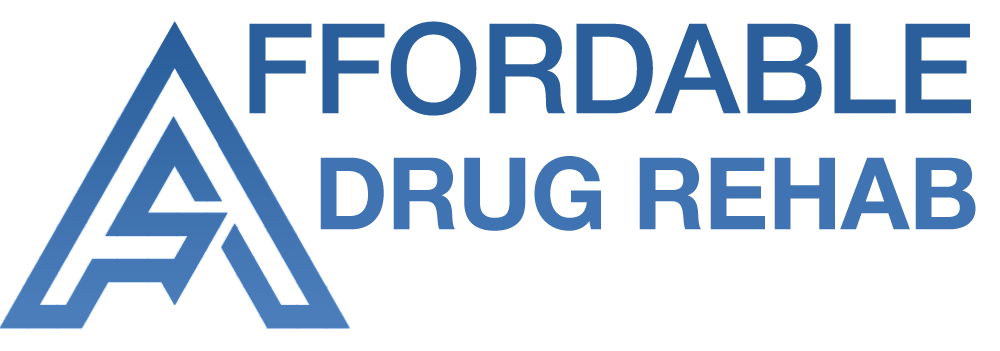At Affordable Drug Rehab, we offer a great choice for those seeking affordable addiction programs nearby. Our goal is to eliminate the hassle of research, allowing you to concentrate on receiving the assistance you or your loved one needs as quickly as possible. Rely on us to connect you with an affordable rehab center today.
Navigating the difficult terrain of addiction and recovery is a challenge that millions of individuals and their families face every day. This tumultuous journey is not just a personal battle; it’s a quest for affordable hope that doesn’t overburden already strain finances. In the United States alone, the opioid epidemic has underlined the urgency for accessible addiction treatment, yet financial barriers often deter individuals from seeking the crucial support they need. It’s a harrowing paradox that confronts us with a critical question: How can we find affordable addiction programs in our area, without sacrificing quality and effectiveness?
The Crucial Step of Seeking Help
Acknowledging the need for help is a monumental first step towards recovery. It takes great courage to admit that there is a problem and to reach out for support. Unfortunately, this crucial step is often hindered by the looming concern of program affordability. Many individuals struggling with addiction avoid seeking help because they fear the financial burden it may bring. Even with insurance, co-pays and out-of-network costs can add up, making many reputable facilities seem out of reach. This is a major barrier that prevents individuals from receiving the necessary treatment to overcome addiction. However, it’s important to remember that there are affordable options available for those in need, and seeking help is always worth the investment in your health and well-being.
- How to Overcome Financial Hurdles
In the quest for affordable addiction programs, there are key strategies and resources that can significantly ease the financial strain.
- Understand Your Insurance Coverage
Thoroughly reviewing your insurance policy to recognize what addiction services are covered can provide clarity on the financial commitment you face. Policies vary widely, with some offering comprehensive coverage while others have strict limitations.
- Seeking Government Assistance
Government programs such as Medicaid, Medicare, and the Affordable Care Act offer crucial financial aid for addiction treatment. These resources can connect you with a range of programs, from inpatient rehabs to outpatient support groups.
- Charity and Nonprofit Organizations
Many nonprofit organizations and charities provide financial aid specifically for addiction treatment. Researching and reaching out to these groups can open doors to affordable care options.
The Path to Treatment
Once the funding puzzle starts to take shape, the next challenge is finding an effective program that suits individual needs. Every person’s addiction is different, and a personalized approach is integral to successful recovery. This is why it’s important to carefully research and evaluate potential treatment options before making a decision. When searching for an affordable rehab center, consider factors such as location, type of program, and treatment methods. Additionally, look for facilities that offer a sliding scale payment system or financial assistance options. This can greatly reduce the financial burden and make quality care more accessible. It’s also crucial to consider the level of support and aftercare provided by the program, as this can greatly impact long-term success in recovery. Ultimately, finding affordable addiction programs that meets individual needs is a crucial step in the journey towards a healthy and fulfilling life in recovery.
- Locating Programs That Fit Your Budget
The landscape of addiction treatment facilities is extensive, with diverse options in terms of philosophy, approach, and cost. Narrowing down your search to programs that align with your financial constraints is a crucial strategy.
- Inpatient vs. Outpatient Programs
Inpatient treatment, while potentially costlier, offers a structured and monitored environment that can be crucial for those with severe addictions. Outpatient programs can be more cost-effective and provide flexibility for individuals with milder substance use disorders.
- The Cost of Aftercare and Ongoing Support
Recovery is not a destination; it’s a lifelong commitment that requires continuous support. Considering the long-term costs of aftercare services is an important part of the budgeting process.
Understanding the Affordability of Treatment
Rehabilitation facilities often offer various payment options and financial assistance programs to make their services more attainable. These may include sliding scale fees based on income, scholarships, grants, or payment plans. Additionally, some facilities work with insurance providers to ensure that individuals receive the necessary treatment without facing overwhelming financial burdens. By offering these options, rehab centers strive to make quality addiction care accessible to those in need, recognizing the critical role it plays in helping individuals and families overcome the challenges of addiction. With this support, individuals can focus on their recovery journey without the added stress of financial strain.
- Sliding Scale Fees
Many rehab facilities offer sliding scale fees based on income, which can significantly reduce the cost of treatment for lower-income clients.
- Payment Plans and Loans
Some centers may provide flexible payment plans or assist in securing loans to cover the cost of treatment. Exploring these options can spread out the financial burden over time.
- Scholarship and Grants
It’s worth inquiring about any scholarships or grants that facilities may offer to offset treatment costs for those in financial need.

Harnessing Community and Peer Support
The journey towards recovery is not one that should be taken alone. Community resources and peer support groups can provide valuable emotional and social support throughout the recovery process. These groups often offer free or low-cost services, such as counseling, mentorship, and educational workshops. They also create a sense of camaraderie and understanding among individuals who have gone through similar struggles with addiction. By harnessing the power of community and peer support, individuals can find affordable ways to continue their recovery journey and maintain a strong network of support.
- The Power of Support Groups
Support groups like Alcoholics Anonymous and Narcotics Anonymous are grassroots organizations that provide invaluable support at little to no cost.
- Community Outreach Programs
Local community centers and religious organizations frequently offer addiction support services, often at a fraction of the cost of formal treatment programs.
- Encouraging Family Involvement
Involving family and loved ones in the recovery process can offer a supportive network that is both emotionally and financially beneficial.
The Role of Counselors and Therapists
Emotional and psychological support is crucial in the recovery process, as addiction often stems from underlying mental health issues. Therefore, finding affordable mental health professionals who specialize in addiction can greatly benefit individuals on their journey towards recovery. These professionals can provide personalized therapy sessions and offer coping strategies to help individuals navigate the challenges of addiction. Low-cost or sliding scale options are often available through community mental health centers, and some private practices may offer pro bono or reduced-rate services for those in need. Investing in affordable mental health support can significantly impact long-term success in recovery.
- Accessing Low-Cost Mental Health Services
Community clinics and university-affiliated counseling centers often offer therapy at reduced rates. These services can provide essential one-on-one support at an affordable price.
- Telehealth and Online Therapy
The growing availability of telehealth services means that individuals can access therapy from the comfort of their home, often at a lesser cost than traditional in-person sessions.
- Therapist Sliding Scale
Many private therapists offer sliding scale fees based on income, ensuring that cost isn’t a prohibitive factor in seeking help.
Preventing Relapse with Continuing Care
After completing a formal treatment program, individuals are often faced with the challenge of maintaining their recovery in the long term. This is where continuing care comes into play, providing ongoing support and resources to help prevent relapse. These services can include individual therapy, group counseling, peer support groups, and educational workshops. It’s important to consider the affordability of these options when choosing a treatment program, as ongoing care is a critical element in sustaining recovery. Many facilities offer affordable aftercare programs, and community resources can also provide low-cost options for individuals seeking continuing support. By prioritizing ongoing care and considering the cost of these services, individuals can increase their chances of long-term success in recovery.
- Transitional Housing and Supportive Living
Transitional housing and sober-living facilities can bridge the gap between inpatient treatment and independent living, often at a reasonable cost.
- Employing Recovery Coaches
Recovery coaches, while an additional expense, can be highly beneficial in providing personalized support and motivation to prevent relapse.
- Leveraging Employer Assistance Programs
Many employers offer assistance programs that can help cover the cost of continuing care services, recognizing the value of supporting employees in their recovery.
The Importance of Investing in Long-Term Recovery
Recovery is not just about overcoming addiction in the present moment, but it’s also an investment in a brighter and healthier future. By prioritizing ongoing care and utilizing affordable resources, individuals can set themselves up for long-term success in recovery. It’s important to consider the cost of treatment and support options as part of this investment, as they are crucial elements in maintaining sobriety and preventing relapse. With a strong support system, access to affordable resources, and a commitment to long-term recovery, individuals can break free from the grip of addiction and build a fulfilling life for themselves. Investing in recovery is investing in one’s future well-being and happiness.
- Calculating the True Cost of Addiction
While the price tag of treatment may seem steep, it pales in comparison to the long-term financial and personal costs of untreated addiction.
- Examining Personal and Family Finances
Performing a detailed assessment of personal and family finances can provide the clarity needed to make strategic decisions about investing in recovery.
- Seeking Professional Financial Advice
Engaging with a financial advisor can provide a comprehensive understanding of the impact of addiction treatment expenses and how they fit into long-term financial planning.
Overcoming Stigma Around Affordable Treatment
The stigma surrounding addiction often extends to the treatment and recovery process, causing many individuals to feel embarrassed or ashamed about seeking affordable options. However, it takes courage and strength to recognize the need for help and actively seek it out. By reframing the narrative around seeking affordable treatment as a strategic choice towards long-term recovery, individuals can overcome this barrier and take charge of their journey towards healing. It’s important to recognize that seeking and investing in affordable treatment is a commendable and proactive step towards a healthier and brighter future.
- Shifting Perspectives on Financial Accessibility
Recognizing that financial constraints should not be a deterrent to seeking help is a powerful mindset shift that can encourage individuals to pursue affordable treatment options.
- Celebrating the Decision to Get Help
Choosing to seek treatment, regardless of the cost, is a decision worth celebrating. It signifies a commitment to health and a brighter future.
- Championing Advocacy for Affordable Care
Becoming an advocate for affordable addiction programs can create positive change in how resources are allocated and made available to those in need.
Get Help as Soon as Possible
Affordability should never stand in the way of accessing quality addiction treatment. By harnessing available resources, strategic planning, and community support, it is possible to overcome the financial hurdles that often accompany this critical step towards recovery. Affordable Drug Rehab is committed to guiding individuals and their families through this process, ensuring that the road to rehabilitation is both accessible and sustainable. Don’t face the challenge of addiction alone—take the first step towards recovery today.
In the pursuit of affordable addiction programs, we must remember that cost should never compromise the quality of care. It’s about finding a balance between your budget and your health, and this equilibrium can be achieved through diligent research, creative thinking, and the generous assistance of the community.
While the struggle to find affordable addiction programs may seem daunting, it’s a challenge that can be overcome with the right tools and support. At Affordable Drug Rehab, we are here to help you every step of the way. Don’t delay your recovery any longer—reach out and start your affordable treatment today. Give us a call at 1 (888) 850-3656 or visit our website at www.affordabledrugrehabs.com.


